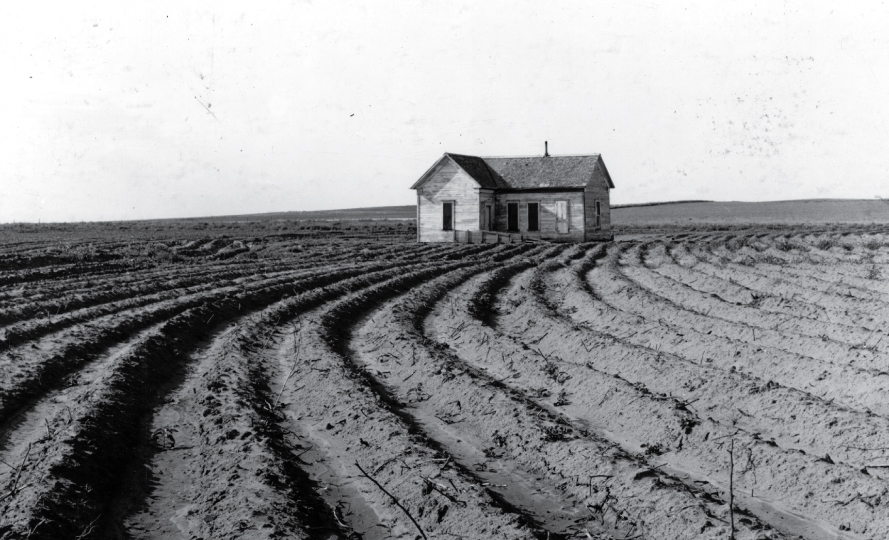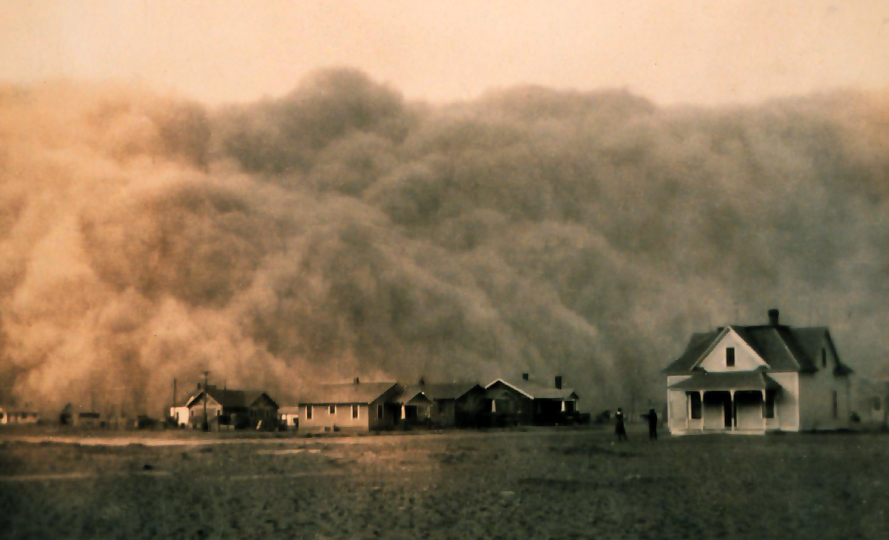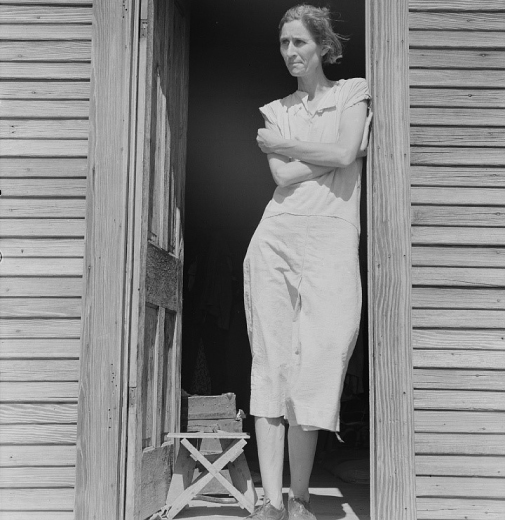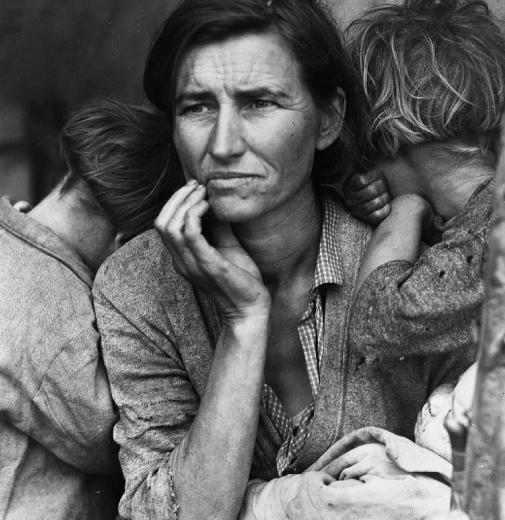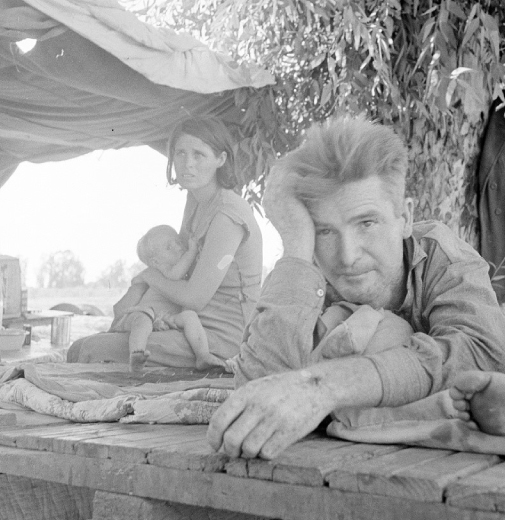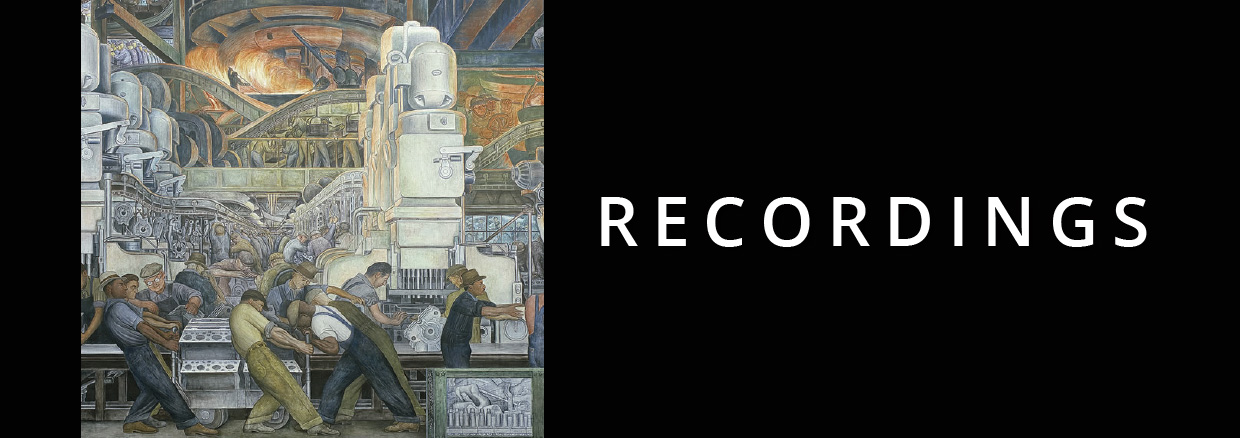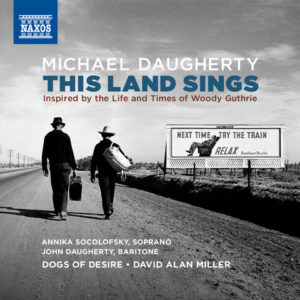This Land Sings: Inspired by the Life and Times of Woody Guthrie
NAXOS/May 2020
World-premiere recording features performances by the Albany Symphony’s Dogs of Desire ensemble led by David Alan Miller, and vocal soloists Annika Socolofsky and John Daugherty. For this release, Daugherty collaborated with Grammy® Award winning producer Silas Brown, to create a recording which re-creates a vintage Capital Records 1950’s soundscape.
Review of Michael Daugherty’s This Land Sings
Andrew Desiderio, FANFARE Magazine, Jan/Feb 2021
David Alan Miller, conductor; Annika Socolofsky, mezzo-soprano; John Daugherty, baritone; Dogs of Desire
NAXOS 8.559889 (66:55)
Michael Daugherty has a talent for making the American musical vernacular sound as fresh as when Aaron Copland began to introduce it to concert music in the 1930s. This Land Sings is an intelligent and thoughtful tribute to the life and times of Woody Guthrie, America’s folk music icon whose songs captured the turbulence of the Depression and spoke out against myriad social injustices.
Far from being mere rearrangements of Guthrie’s songs, Daugherty imagines the work as a radio broadcast (there was an original plan to bind the work together with an announcer, but this was scrapped for the sake of time constraints) to create a portrait of the singer and his times, using original music and lyrics to view Guthrie’s art and times through a contemporary lens. The “Overture,” a raucous fantasy on This Land is Your Land, makes it clear that this is a work of fun, heart, and imagination. The same could be said of “Perpetual Motion Man,” a portrait of Guthrie as he restlessly wandered the country as America’s latter-day troubadour. There are two songs I loved in particular—“Hot Air,” devilishly spoken by John Daugherty (no relation) is an accompanied monologue by a blathering radio preacher (modeled on Father Coughlin) extolling his own bigoted rhetoric; and “Silver Bullet,” a vicious song targeting gun culture, also hits close to home with its hard-hitting topicality. “The Ghost and the Will of Joe Hill” is a haunting ballad based on the 1915 execution of a labor activist and songwriter. What struck me in this one is Michael Daugherty’s imaginative musical treatment of the text, particularly with its use of drone and multiple characters—it reminded me of both Renaissance madrigal music and Schubert’s songs in this regard. It is evocative and instantly enjoyable, made even more so by Daugherty’s superb lyrics.
The performance by Dogs of Desire, the Albany Symphony’s new music ensemble under the direction of David Alan Miller, is outstanding in its crisp execution and impeccable rhythm. John Daugherty’s voice is expressive and varied, but I found the smoothness and of Annika Socolofsky’s voice simply mesmerizing. Both have excellent diction. A highly enjoyable and original work.
Daugherty: This Land Sings review – exuberant polyglot Woody Guthrie celebration, The Guardian
Michael Daugherty: This Land Sings, BBC Music Magazine
Michael Daugherty: This Land Sings (Inspired by the life and times of Woody Guthrie) – Annika Socolofsky; John Daugherty; Dogs of Desire; David Alan Miller, The Whole Note
AllMusic Review of Michael Daugherty: This Land Sings
Explore Classical Music article on This Land Sings
Classical Notes: New releases from Daugherty, Tann, Times Union (Albany)
Michael Daugherty: This Land Sings, Glarean Magazine (German)
TRACK LISTING
- Overture
- The Ghost and Will of Joe Hill
- Perpetual Motion Man
- Marfa Lights
- Hear the Dust Blow
- Graceland
- Forbidden Fruit
- Hot Air
- Bread and Roses
- This Land Sings
- Silver Bullet
- This Trombone Kills Fascists
- Don’t Sing Me a Love Song
- My Heart is Burning
- I’m Gonna Walk That Lonesome Valley
- Mermaid Avenue
- Wayfaring Stranger / 900 Miles
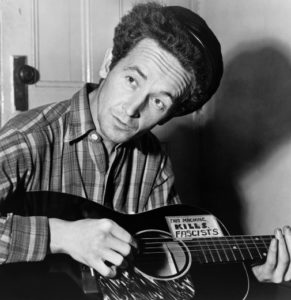
COMPOSER STATEMENT:
“During these times of turbulence and uncertainty, I think back to the songwriter and political activist Woody Guthrie, who traveled across America with his guitar and harmonica to perform songs of hope and social justice during the Great Depression and World War II. As a musical tribute to this Dust Bowl troubadour, I have composed This Land Sings: Inspired by the Life and Times of Woody Guthrie, a song cycle with seventeen original vocal and instrumental numbers, like a Grand Ole Opry radio broadcast. It is my hope that this Naxos recording, featuring the Albany Symphony’s new music ensemble Dogs of Desire, will remind us that music can spark greater awareness and bring about meaningful change.”
–Michael Daugherty
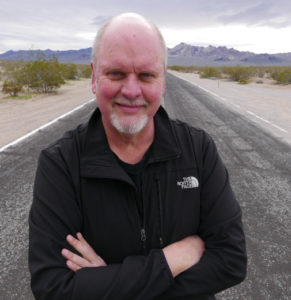
PROGRAM NOTE:
This Land Sings: Inspired by the Life and Times of Woody Guthrie (2016) was commissioned and premiered by the Tulsa Camerata, conducted by the composer with Annika Socolofsky, mezzo-soprano, John Daugherty, baritone and Jason Heilman, radio announcer at the Philbrook Museum of Art Tulsa, Oklahoma on April 22, 2016. Traveling America from coast to coast with his acoustic guitar and harmonica, Woody Guthrie performed folk songs of love, wandering and social justice, including his famous anthem “This Land is Your Land,” at Workers Union gatherings, radio stations, street corners and concerts halls during the Great Depression and World War II.
To prepare for my musical tribute to this Dust Bowl troubadour, I drove for several weeks along the desolate barren and dusty backroads of Texas and Oklahoma where Woody once roamed, while listening to just about everything that Woody recorded during his brief lifetime (1912-1967). I also spent time at the Woody Guthrie Center in Tulsa, Oklahoma, researching his fascinating life and wide-ranging artistic output.
Returning to my studio in Ann Arbor, Michigan, I composed my own original songs and instrumental interludes inspired by the life and times of Woody Guthrie. Since he often performed with other folk singers and musicians on radio shows in the 1940s and 1950s, I decided to structure the work into seventeen vocal and instrumental “numbers,” like a Grand Ole Opry radio broadcast. To convey the lean times of the Great Depression I pared down the ensemble to a female singer, male singer, violin, clarinet/bass clarinet, bassoon, trumpet/flugelhorn, trombone, contrabass, percussion (one player) and optional harmonica and optional radio announcer. The music I composed gives haunting expression, ironic wit and contemporary relevance to the political, social and environmental themes from Woody Guthrie’s era.
- In the instrumental Overture, we hear brightly orchestrated fragments of an old American folk hymn, “O My Loving Brother.” The Carter Family borrowed the tune and recorded it in 1930 as “When the World’s on Fire.” A decade later, the same melody was used by Woody for his iconic American anthem, “This Land is Your Land.”
- The Ghost and Will of Joe Hill is a rumination on the tragic end of Joe Hill who, like Woody, was an influential labor activist and songwriter. Framed by Union bosses for a murder he did not commit, Hill was executed in 1915 by firing squad in Utah, but not before he wrote his famous last will. For this duet, I have composed original melodies for the baritone, who sings the final words of Joe Hill, and for the soprano, who sings three stanzas from the 1934 poem “Joe Hill” written by Alfred Hayes. The complete poem became widely known in the1938 song by Alfred Hayes and Earl Robinson, “I Dreamed I Saw Joe Hill Last Night.”
- In Perpetual Motion Man, I evoke the idea of Woody as a man who was always on the go, “itching to hit the road” by hitching a ride on a train, in a bus, in a car or a boat.
- For the instrumental interlude Marfa Lights, I imagine Woody roaming across desolate plains to the Rio Grande River and the ghostly hills of the Mexican border to Marfa, Texas. A lonely flugelhorn plays music that reflects on the mysterious nocturnal lights of Marfa.
- Hear the Dust Blow recalls the devastating dust storms that destroyed towns and farms in Oklahoma and Northern Texas, as depicted in John Steinbeck’s seminal 1939 novel The Grapes of Wrath. Woody, and thousands of others like him, had to abandon their homesteads and attempted to migrate to the Promised Land of California. I have recast the old American folk song, “Down in the Valley,” into a slow and melancholy Dust Bowl lament sung by the soprano.
- Woody was a champion for the rights of workers who toiled for little pay in the factories and fields, while the bosses reaped all the profits. Stealing from the poor, the rich spent their fortunes on fancy tombstones in cemeteries like Chicago’s “Graceland.” In my song Graceland, I combine excerpts from Carl Sandberg’s 1916 parodic poem of the same title, with my own text and the musical flair of Elvis.
- Like Mark Twain, Woody had a sly sense of humor that often crept into his songs. Forbidden Fruit is a musical riff on Twain’s perverse retelling of the biblical story of Adam and Eve. In this musical dialogue between soprano and baritone, perhaps getting thrown out of the Garden of Eden wasn’t so bad after all.
- Woody was intolerant of anyone full of hot air, like the virtuous Father Coughlin who preached the virtues of fascism and racism on his nationally syndicated AM radio broadcasts, heard by millions across America throughout the 1930s and 40s. In Hot Air, we hear a baritone as an AM radio talk show host, “spinning lies from coast to coast.”
- Woody sang for the equal rights for all men and women regardless of gender, race or religion. In Bread and Roses, I have composed original music for soprano and bassoon, using the words of James Oppenheim’s 1911 suffrage poem of the same title, as a solemn tribute to the millions of women who struggled and eventually won the right to vote.
- In This Land Sings, I expand the instrumental Overture and introduce elements from the 19th century folk song “Wayfaring Stranger,” heard again later in the final song.
- Woody was a pacifist who chose to serve in World War II not as a combat soldier, but as a cook on U.S. Merchant Marine convoy ships. My hunch is that Woody would not approve of the bullet-proof baritone protagonist in Silver Bullet, who sings that owning a gun is a “license to kill.”
- This Trombone Kills Fascists is a vibrant duet between trombone and percussion. The title is a reminder of the slogan that Woody painted on his acoustic guitar in the early 1940s: “This Machine Kills Fascists.”
- Woody was a wanderer who routinely left those who loved him behind. Don’t Sing Me a Love Song is an anti-romantic duet in which an abandoned woman tells her restless man to “pack his bags.”
- Woody was haunted by tragic fires that killed three members of his family: his sister when he was seven, his father when he was twelve, and his four-year-old daughter when he was 35. My Heart is Burning is a wistful requiem, performed by harmonica and contrabass.
- During his lifetime, Woody covered many traditional American songs, such as I’m Gonna Walk That Lonesome Valley. Incorporating only the words from that song, I have written a new melody and scored it as a soulful duet for baritone and clarinet to “walk that lonesome valley.”
- In 1945, Woody married his second wife who was a dancer with the Martha Graham Company. They moved to Mermaid Avenue, a vibrant Jewish community located in Coney Island, where Woody learned Yiddish and experienced some of his happiest and saddest days: he began to experience the first signs of Huntington’s disease, which would eventually take a fatal toll in 1967. For the instrumental movement of Mermaid Avenue, I have composed virtuosic klezmer dance music that is interrupted by ominous overtones.
- For more than two decades, Woody traveled across America, singing his folk songs to anyone who would listen. In the final duet Wayfaring Stranger/900 Miles I juxtapose two classic American folk songs that he often performed. As the singers wistfully whistle the end of the song, I imagine Woody walking and whistling down a dusty road into the sunset, signaling the end of our radio broadcast.
~Michael Daugherty
WORDS:
2. The Ghost and Will of Joe Hill
Words: Alfred Hayes from his poem “Joe Hill” © 1934 by Alfred Hayes (reprinted by permission of Josephine Hayes Dean) and Joe Hill written on the eve of his execution (1915; public domain)
Mezzo-Soprano: I dreamed I saw Joe Hill last night,
Alive as you and me.
Says I, “But Joe, you’re ten years dead.”
“I never died,” says he.
Baritone: My will is easy to decide,
For there is nothing to divide.
My kin don’t need to fuss and moan.
“Moss does not cling to a rolling stone.”
Mezzo-Soprano: “The copper bosses killed you, Joe.
They shot you, Joe,” says I.
Takes more than guns to kill a man.
Says Joe, “I did not die.”
Baritone: My body? Oh! If I could choose,
I would want to ashes it reduce
And let the merry breezes blow
My dust to where some flowers grow.
Mezzo-Soprano: “Joe Hill ain’t dead,” he says to me,
“Joe Hill ain’t never died.”
Where working men are out on strike,
Joe Hill is at their side.
Baritone: Perhaps some fading flower then
Would come to life and bloom again.
This is my last and final will.
Good luck to all of you.
Mezzo-Soprano: I dreamed I saw Joe Hill last night.
Baritone: Good luck to all of you.
3. Perpetual Motion Man
Words: Michael Daugherty
Baritone: I’m gonna catch a Greyhound bus.
I don’t mean to make no fuss.
The clock’s strikin’ twelve and it’s time for me as well.
I’m gonna catch a Greyhound bus.
Mezzo-Soprano: I’m gonna steal away in a train.
It’s time for a scenery change.
I’ve done all I can; now it’s time for me to scram.
I’m gonna steal away in a train.
Both: East or West, makes no difference to me;
North or South, it’s the same!
I’ve gotta keep movin’ to the Promised Land.
I’m a Perpetual Motion Man.
Baritone: I’m gonna hitch a ride in a car.
I hope that you’re travelin’ far.
I’ve paid all my dues; now it’s time to fly the coop.
I’m gonna hitch a ride in a car.
Mezzo-Soprano: I’m gonna stow away in a boat.
I only hope that it can float.
You’re gettin’ too close; now I’m gonna be a ghost.
I’m gonna fly away in a boat.
Both: West or East, makes no difference to me;
South or North, it’s the same!
I’ve gotta keep movin’ to the Promised Land.
I’m a Perpetual Motion Man.
Baritone: In a bus!
Mezzo-Soprano: In a boat!
Baritone: In a train!
Mezzo-Soprano: In a truck!
Both: In a train, in a truck, in a car, in a bus!
Perpetual Motion, Perpetual Motion…
5. Hear the Dust Blow
Words: Michael Daugherty and Anonymous
Mezzo-Soprano: Down in the valley, valley so low,
Hang your head over, hear the dust blow.
Heaven was blue, now it’s brown.
Dust is blowing through every town.
Build me a castle forty feet high,
So I can’t see the dust in the sky.
Mother Nature calls to me;
Save the planet; let it be.
Hear the dust blow. Hear the wind blow.
Hear the dust blow, blow, blow!
6. Graceland
Words by Michael Daugherty and Carl Sandburg (1916; public domain)
Baritone: Tomb of a millionaire, a multi-millionaire,
Ladies and Gentlemen.
Place of the dead where they spend every year,
The usury of twenty-five thousand dollars
For upkeep and flowers, to keep fresh the memory of the dead.
Graceland, Graveyard, Chicago,
Graceland, Millionaires, Tombstones, Oh!
They take from the poor and give to the rich!
Robin Hood—he stole from the rich and he gave to the poor.
He was fighting the banks who come to your door
And take away your house, your belongings and more.
They fight for you; they are forced to roam.
You never see an outlaw drive a family from their home.
Robin Hood, Pretty Boy, Jesse James,
Zorro, Belle Starr, Bonnie and Clyde!
They take from the poor and give to the rich!
Graceland, Graveyard, Chicago,
Graceland, Millionaires, Tombstones,
Robin Hood, Pretty Boy, Jesse James,
Zorro, Belle Starr, Bonnie and Clyde!
Graceland—bah-dah-bah!
Graveyard, Chicago—bah-dah-bah!
Graceland—bah-dah-bah!
Millionaires, tombstones— bah-dah-bah!
Bah-dah-bah! Bah-dah-bah! Bah-dah-bah!
Graceland! Thank you very much.
7. Forbidden Fruit
Words: Michael Daugherty and Mark Twain (1905; public domain)
Baritone: The world was made in six days, finished on the seventh.
According to the contract, should have been the eleventh.
Mezzo-Soprano: Then God made Adam, but He was not pleased.
With a rack of ribs, God created Eve.
Both: Adam and Eve, livin’ in harmony.
Baritone: God made a garden, but He was not pleased.
Named it The Garden of Eden, was a paradise.
Mezzo-Soprano: In the lovely garden, God made a tree with fruit;
But if you eat the apples, you will get the boot.
Both: Adam and Eve, livin’ in harmony.
Baritone: Serpent slithered forth, spoke with honey tongue:
“Eve, if you eat the forbidden fruit, Wisdom, it will come.”
Mezzo-Soprano: Eve picked the apple, took a bite and cried,
“Adam, you gotta taste this; your stock will surely rise.”
Baritone: Adam took a bite.
Mezzo-Soprano: But God was not too pleased.
Baritone: They’d broken His commandments.
Mezzo-Soprano: And made them both to flee.
Baritone: They were all alone,
Mezzo-Soprano: Forced to roam the earth.
Both: But True Love prevailed.
They learned each other’s worth.
Adam and Eve, livin’ in harmony.
8. Hot Air
Words: Michael Daugherty
Baritone: I am a radio talk show host,
Spinning my lies from coast to coast.
Heed my words as I spread the news.
I am a genius and a real guru.
Dee dah dah…Dya dee dah…
Listen to me and my words of doom,
Riding the airwaves from Flint to Duluth.
The Left and feminists are who I hate,
Liberals—the enemy of our state.
Dee dah dah…Dya dee dah…
Talking the talk on my radio show…
Becoming famous, making lots of dough…
Sittin’ in my chair, on my bum,
Blowing your mind with all my scum!
I am a radio talk show host!
A.M. Radio is the Holy Ghost!
Drive-by media in my sights,
I divide the nation day and night.
Ruling the air-waves and distorting the facts,
Blaming the Left-wing to the max.
Dee dah dah…Dya dee dah…
Wow!
9. Bread and Roses
Words: James Oppenheim (1911; public domain)
Mezzo-Soprano: As we come marching,
Marching in the beauty of the day,
A million darkened kitchens,
A thousand mill lofts gray
Are touched with all the radiance
That a sudden sun discloses.
For the people hear us singing,
“Bread and Roses, Bread and Roses.”
As we come marching,
Marching unnumbered women dead
Go crying through our singing
Their ancient cry for bread.
Small art and love and beauty
Their drudging spirits knew.
Yes, it is bread that we fight for.
“Bread and Roses, Bread and Roses.”
11. Silver Bullet
Words: Michael Daugherty
Baritone: Battle Royale sure is fun.
Smell the bullet. Hands off my gun!
Strike a match, Texas barbeque…
I’ve got a right to carry; so do you.
Give me liberty or give me death!
It’s a license to kill.
Open Carry, Salute in Peace…
Blood on your hands for those deceased…
Tighter regulations won’t change our mind.
Gun control is for dumb and blind.
The Second Amendment ain’t bulletproof.
Some say the laws are out of date.
Get a gun and own your own fate!
Charlton Heston, N.R.A….
Shoot to kill; it’s The American Way.
The revolution will happen again.
If you take our guns, you will never win!
Give me liberty or give me death.
It’s a license to:
Eradicate, assassinate,
Decapitate, exterminate,
Decollate, lapidate,
Eliminate, annihilate!
13. Don’t Sing Me a Love Song
Words: Michael Daugherty
Baritone: You want me to hang my hat on the door,
To make a pledge to you
That I’ll never leave home ever again.
You say it’s the right thing to do.
I’ve got to wander and follow my path
From the mountains to the sea.
Driving down the highway from town to town—
It’s the only way I feel free.
It’s the only way I feel free.
Mezzo-Soprano: Don’t sing me a love song.
I don’t need to nag.
I know you’re a searchin’.
You’ve got to pack your bags.
Baritone: When I’m at home, I begin to feel
That life is passing me by.
Mezzo-Soprano: Passing him by…
Baritone: I get an itch to hit the road.
If I don’t leave, I’ll roll up and die.
Mezzo-Soprano: You’ll roll up and die.
Both: Everyone says you’re/I’m being a fool
By leaving me/you behind.
But wild horses can’t make you/me stay.
You’ve/I’ve already made up your/my mind.
You’ve/I’ve already made up your/my mind.
Baritone: From New York City to New Orleans
To parts of Mexico…
From Miami to Seattle, I’ve got to roam
From Maine to The Alamo.
You’ve got to understand I’ve got things to do
And lots of places to see.
Hitting the road is my way of life; it’s the only way for me.
It’s the only way for me…only way for me.
Mezzo-Soprano: Don’t sing me a love song.
I don’t need to nag.
Don’t sing me a love song.
You’ve got to pack your bags.
15. I’m Gonna Walk That Lonesome Valley
Words: Anonymous
Baritone: I’m gonna walk that lonesome valley;
I’m gonna walk it by myself.
Nobody else can walk it for me;
I’m gonna walk it by myself.
See that valley there before me?
Will it be my new home?
No one else can walk it for me—
Rather walk there all alone.
Will my friends be there to greet me?
Will my life be not in vain?
Will my God be there to greet me?
Will I live in peace again?
17. Wayfaring Stranger/900 Miles
Words: Anonymous
Baritone: I am a poor wayfaring stranger
While travelin’ through this world of woe.
Yet there’s no sickness, toil or danger
In that bright world to which I go.
I’m going there.
Mezzo-Soprano: Walkin’ down this railroad track,
I got tears in my eyes,
Tryin’ to read a letter from my home.
Baritone: I’m going there.
Mezzo-Soprano: Walkin’ down this railroad track,
I got tears in my eyes,
Tryin’ to read a letter from my home.
If this train runs me right,
I’ll be home tomorrow night.
I’m nine hundred miles from my home.
Baritone: I’m going there to meet my Father;
I’m going there no more to roam.
Both: This world of woe.
Mezzo-Soprano: I hate to hear that lonesome whistle blow.
Baritone: I’m only going over home.
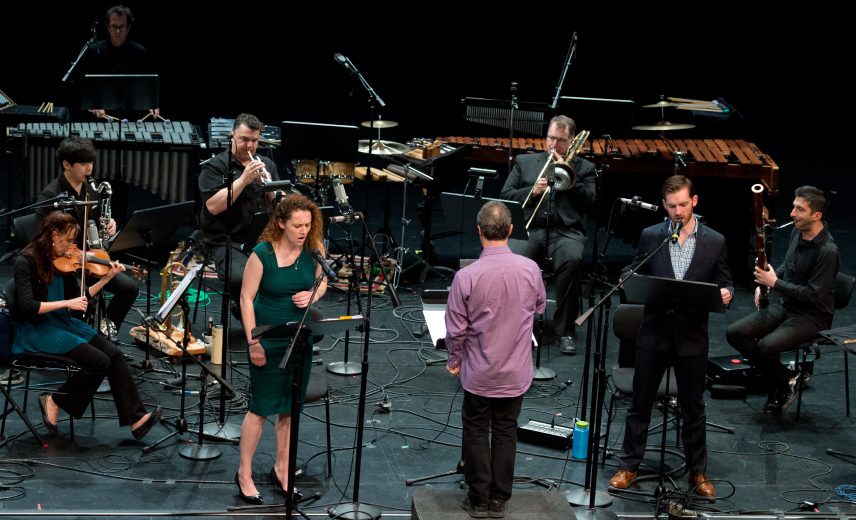
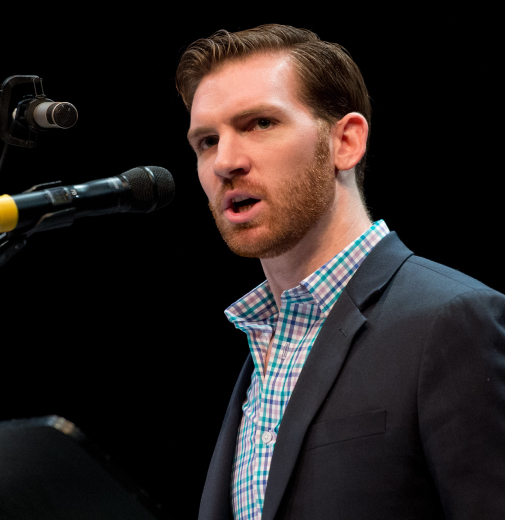
John Daugherty
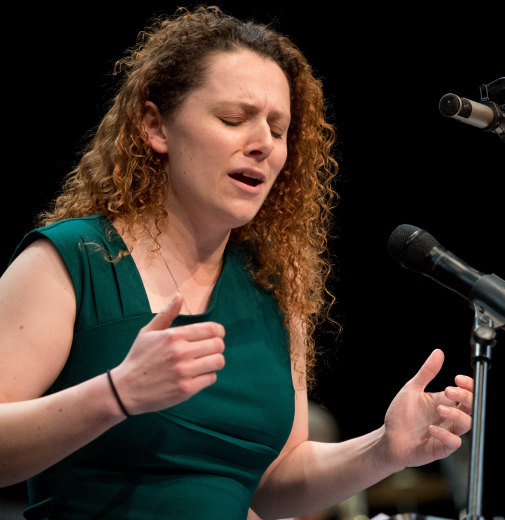
Annika Socolofsky
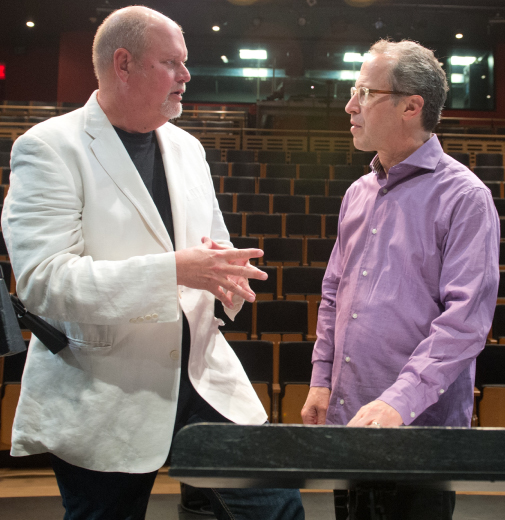
Composer Michael Daugherty and Conductor David Alan Miller at the recording session of This Land Sings: Inspired by the Life and Times of Woody Guthrie (Troy, New York, June 3, 2017)
Dust Bowl photos by Dorothea Lange (1938) (Library of Congress):
